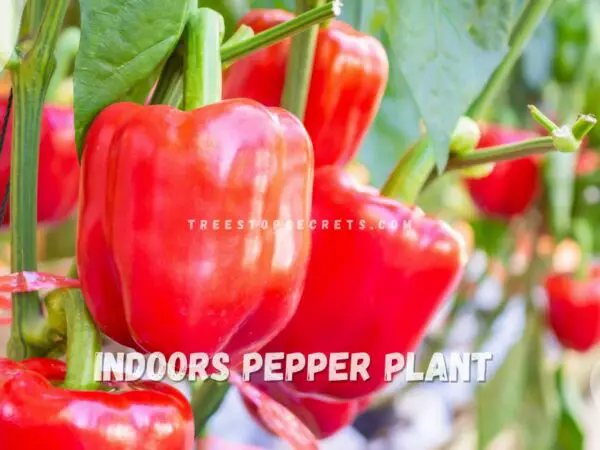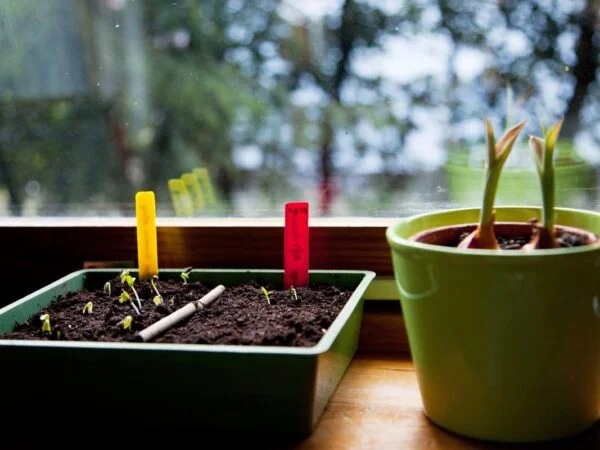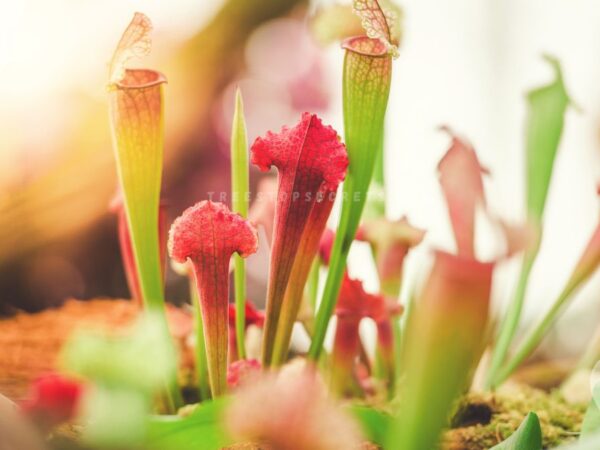Hanging basket plants have been a popular choice for home and garden enthusiasts for centuries, featuring versatile blooms and hardy perennials in mixed baskets for a vibrant flower bed. These vibrant displays of vivid plants and colorful flowers, including beautiful begonias, not only add beauty but also bring life to any space with plant hooks. Historically, hanging gardens with perennial plants and vivid plants were used in ancient civilizations, showcasing the art of vertical gardening with colorful flowers. Today, they are a go-to for those looking to maximize limited space with perennials and colour while enjoying the benefits of indoor and outdoor plants.
From colorful flowers and perennials to lush foliage, hanging baskets offer a variety of options for every taste and colour. They are easy to care for and can thrive in various environments. Whether you want to spruce up your porch or brighten your living room, hanging basket plants are the perfect solution. Enjoy the charm and freshness they bring to your home.
Key Takeaways
-
Choose vibrant plants like Lobelia, Calibrachoa, and Geraniums to create eye-catching hanging baskets that brighten your space.
-
Consider mixing different types of plants, such as Nasturtiums and Verbena, for a diverse and colorful display.
-
When planting, use a high-quality potting mix and ensure good drainage to keep your plants healthy.
-
Hang your baskets in areas that receive appropriate sunlight based on the plants' needs for optimal growth.
-
Water your hanging baskets regularly and check for pests to maintain their health and appearance.
-
Remember to fertilize your plants every few weeks to encourage blooming and overall vitality.
Top 10 Hanging Basket Plants
Hanging basket plants bring life to any space. They add color and beauty both indoors and outdoors. Here are some popular choices for hanging baskets.
Begonia x tuberhybrida
Begonia x tuberhybrida stands out with its vibrant colors and large flowers. These blooms come in shades of red, pink, yellow, and white. They catch the eye and brighten up any area.
This plant thrives in shady spots. It works well in gardens that don’t get a lot of sunlight. The longevity of its blooms is impressive. You can enjoy continuous color throughout the growing season. This makes it a great choice for those who want lasting beauty.
Fuchsias
Fuchsias have a compact growth habit. This feature makes them perfect for small spaces like balconies or patios. They produce extravagant blooms from spring to fall, creating a stunning display.
These plants come in various colors. You can find fuchsias in shades of purple, pink, and red. This variety enhances visual interest in hanging displays. Their unique shape also adds charm to any garden.
Petunias
Petunias are known for their fragrant blooms and lush foliage. These plants provide sensory appeal, making your outdoor space more inviting. The wide range of bold colors allows for creative combinations in your baskets.
Petunias are resilient and thrive in sunny conditions. They can handle heat and drought better than many other plants. This quality makes them perfect for outdoor baskets where they receive full sun exposure.
Bacopa
Bacopa adds volume and texture to hanging baskets. Its trailing vines create a lush appearance that softens edges. This plant is easy to grow, making it suitable for novice gardeners.
Bacopa comes in white, blue, or lavender colors. It fits well into color-themed arrangements or mixed plantings. Consider pairing it with brighter flowers for a stunning contrast.
Lobelia and Calibrachoa
Lobelia Varieties
Lobelia is known for its airy foliage and delicate flowers. These plants create a soft appearance in hanging baskets. They look beautiful when cascading over the edges. The flowers come in a variety of colors, including white, pink, and blue. This wide range allows for diverse displays that can match any garden theme.
Lobelia is also great for filling gaps in mixed plant arrangements. It blends well with other plants. For example, pairing lobelia with larger blooms can create a stunning visual effect. Its versatility makes it a popular choice among gardeners.
Calibrachoa Varieties
Calibrachoa is famous for its prolific blooming nature. These plants produce vibrant displays almost all season long. Their small, bell-shaped flowers add charm to any basket. Calibrachoa is also weather-proof. They can handle different climates, making them reliable choices for various conditions.
The color range of calibrachoa is impressive. You can find shades from deep red to bright yellow. This allows gardeners to create colorful combinations easily. Mixing calibrachoa with other hanging plants can enhance your garden's beauty.
Geraniums and Osteospermum
Geranium Types
Geraniums are popular in hanging baskets due to their drought-tolerant nature. They need little water once established. This quality makes them low-maintenance, perfect for busy gardeners.
These plants come in various leaf shapes and colors. Some have rounded leaves, while others feature jagged edges. Colors range from deep green to variegated patterns. This diversity enhances visual interest in any arrangement.
Geraniums have a classic appeal. They are a staple in hanging basket gardening. Their vibrant flowers bloom all summer long, attracting pollinators like bees and butterflies. Consider using varieties like 'Rozanne' or 'Geranium sanguineum' for stunning displays.
Osteospermum Varieties
Osteospermum thrives in bright locations. These sun-loving plants require at least six hours of sunlight each day. They produce beautiful daisy-like flowers that add charm to any garden.
Newer trailing varieties are ideal for hanging displays. These types drape elegantly over the sides of baskets. They create a soft, flowing look that elevates your outdoor space. Varieties such as 'Margarita' or 'Soprano' work well for this purpose.
Their unique flowers come in various colors, including purple, white, and yellow. This variety allows gardeners to mix and match for stunning effects. The blooms also attract butterflies, enhancing the garden's liveliness
Nasturtiums and Verbena
Nasturtium Ideas
Nasturtiums are bright, cheerful flowers. They come in many colors like orange, yellow, and red. These flowers can add vibrancy to any hanging basket. Sowing flower seeds gives a personal touch. You can choose the colors that you love.
These plants also have edible flowers. They taste peppery and can be used in salads or as garnishes. This makes them both beautiful and useful. For example, using nasturtium petals in a salad adds color and flavor. It’s a great way to impress guests at dinner.
To grow nasturtiums successfully, plant them in well-drained soil. They thrive in sunny spots but can tolerate some shade. Water them regularly but avoid over-watering. This helps prevent root rot.
Verbena Varieties
Verbena is another excellent choice for hanging baskets. Its trailing nature creates a lovely cascading effect. This makes it perfect for adding depth to your displays.
These plants are also resistant to mildew. This means they stay healthy even in humid conditions. You won’t have to worry much about disease when growing verbena.
Verbena comes in many colors too. You can find shades of purple, pink, and white. Mixing these colors enhances the overall look of your arrangements. For instance, combining purple and white verbena creates a striking visual contrast.
Growing verbena is easy. They prefer full sun but can tolerate partial shade. Make sure to water them regularly, especially during dry spells. Fertilizing every few weeks will encourage more blooms.
Planting Hanging Baskets
Hanging baskets are a great way to add beauty to your home or garden. They can be filled with a variety of plants, making them versatile and attractive. Proper planning is key to creating stunning displays.
Choosing the Right Plants
Select plants based on their sunlight needs. Some thrive in full sun, while others prefer shade. For example, petunias love sunlight, while ferns do better in low light.
Consider how plants grow together. Some plants spread out, while others grow upright. Mixing different growth habits creates a balanced look in your basket.
Look at the blooming seasons of your chosen plants. Some bloom in spring, while others flower in summer or fall. A mix of these will keep your hanging basket colorful year-round.
Soil and Fertilizer Tips
Use a well-draining potting mix for hanging baskets. This helps prevent root rot, which can kill your plants. A good mix often includes peat moss, perlite, and compost.
Incorporate slow-release fertilizers into your soil. This provides nutrients over time and supports continuous growth. However, check the fertilizer's instructions to avoid over-fertilizing.
Maintaining the right pH balance is crucial for plant health. Most plants prefer a pH between 6 and 7. You can test the soil with simple kits available at garden stores.
Watering Guidelines
Check soil moisture before watering your hanging basket. Stick your finger about an inch into the soil. If it feels dry, it's time to water; if it's still moist, wait a bit longer.
Establish a consistent watering schedule. This is especially important during hot weather when plants may dry out quickly. Watering early in the morning or late in the evening is best.
Consider using drip irrigation systems for efficient watering. These systems deliver water directly to the roots, reducing waste and ensuring even moisture distribution.
Displaying Hanging Baskets
Hanging baskets can transform any space. They add color and life to both indoor and outdoor areas. Using basket displays effectively can create a stunning visual impact.
Creative Display Ideas
Using varied heights and textures makes arrangements more appealing. Hang some baskets higher than others for depth. This creates interest in your display. Mixing different plant types also adds vibrancy. Consider combining trailing plants with upright varieties. This contrast creates a dynamic look.
Decorative pots or hangers enhance aesthetics. Choose colorful or patterned options that match your decor. For instance, a large basket filled with bright flowers can become a focal point. Use rustic wooden hangers for a natural feel or sleek metal for modern spaces.
Indoor vs Outdoor Options
Light requirements differ for indoor plants in hanging baskets. Most indoor plants need bright, indirect light to thrive. Consider using colorful shade baskets with plants like ferns or pothos if your space is darker.
Outdoor hanging baskets boost curb appeal significantly. They welcome guests and brighten up patios or porches. Plants like petunias or geraniums flourish outdoors and attract pollinators too.
Seasonal swaps are possible between indoor and outdoor displays. Move hardy plants outside in spring and bring them back inside during colder months. This keeps your plant collection fresh and vibrant year-round.
Seasonal Considerations
Selecting seasonal plants is crucial for year-round interest. Spring brings vibrant blooms, while fall showcases rich colors like oranges and reds. Choose plants that reflect the season’s beauty.
Winter protection is vital for tender plants in colder climates. Move sensitive hanging baskets indoors to protect them from frost. For outdoor displays, consider using basket hardware that shields them from harsh weather.
Rotating plants based on seasonal changes maintains freshness in your displays. Swap out summer flowers for winter greens or holiday-themed arrangements. This way, you keep the display exciting throughout the year.
Care Tips for Hanging Baskets
Caring for hanging baskets is essential for healthy plants. Proper care ensures vibrant blooms and lush foliage. Regular attention keeps them looking their best throughout the growing season.
Pruning Techniques
Regular deadheading is crucial for hanging baskets. Removing spent flowers encourages more blooms. It also prolongs the flowering period, making your plants look fuller.
Trimming back leggy growth helps create a denser appearance. Plants can become sparse over time, losing their charm. A little pruning makes them bushier and more appealing.
Sterilizing tools before pruning is important. Clean tools prevent the spread of diseases. Use rubbing alcohol or a bleach solution to sanitize your equipment. This simple step can save your plants from potential harm.
Pest Control Methods
Using organic insecticides is a smart choice for pest management. These products control common pests without harming your plants or the environment. Look for options like neem oil or insecticidal soap.
Regular inspections are key to catching infestations early. Check under leaves and around stems for signs of pests. Early detection allows for quicker treatment, reducing damage to your plants.
Companion planting can deter pests naturally. Some plants repel insects that harm others. For example, marigolds fend off aphids and nematodes. Pairing these with your hanging plants creates a healthier garden.
Regular Maintenance Tips
Consistent watering is vital for hanging baskets. These plants often dry out faster than those in the ground. Water them regularly to keep soil moist but not soggy.
Fertilization should also follow a schedule. Use a balanced fertilizer every few weeks during the growing season. This helps provide essential nutrients for strong growth and vibrant blooms.
Monitoring plant health is beneficial for early issue detection. Look for yellowing leaves or wilting as signs of stress. Addressing problems quickly prevents further damage.
Seasonal clean-up promotes healthy growth in hanging baskets. Remove dead leaves and debris to improve air circulation. This practice helps reduce disease risk and encourages new growth.
Final Remarks
Hanging basket plants can transform your outdoor and indoor spaces. From vibrant lobelias to cheerful geraniums, you’ve learned about the best options for your hanging displays. Proper planting, displaying, and care tips ensure these beauties thrive.
Now it’s time to get your hands dirty! Choose your favorite plants and create stunning arrangements that will brighten any area. Don’t forget to share your creations with friends or on social media. Your hanging baskets could inspire others to add a splash of color to their lives. Happy planting!
Frequently Asked Questions
What are the best plants for hanging baskets?
The top plants for hanging baskets include:
-
Lobelia
-
Calibrachoa
-
Geraniums
-
Osteospermum
-
Nasturtiums
-
Verbena
These plants thrive in containers and provide vibrant colors.
How often should I water my hanging basket plants?
Water your hanging basket plants every 1-3 days. Check the soil moisture; if it feels dry an inch below the surface, it's time to water.
Can I use regular potting soil for hanging baskets?
Yes, you can use regular potting soil. However, a lightweight potting mix designed for containers is ideal as it promotes drainage and aeration.
How do I display my hanging baskets effectively?
Choose locations with adequate sunlight and protection from strong winds. Use sturdy hooks or brackets to ensure stability and visibility.
What care tips should I follow for hanging baskets?
-
Water regularly.
-
Fertilize every few weeks.
-
Prune dead flowers to encourage new growth.
-
Monitor for pests and diseases.
These practices keep your plants healthy and blooming.
Are there any annuals suitable for hanging baskets?
Yes, many annuals work well in hanging baskets. Popular choices include petunias, fuchsias, and impatiens. They provide continuous blooms throughout the growing season.
When is the best time to plant hanging baskets?
The best time to plant hanging baskets is in spring after the last frost. This ensures optimal growth as temperatures rise.
Image Source: Paid image from CANVA




